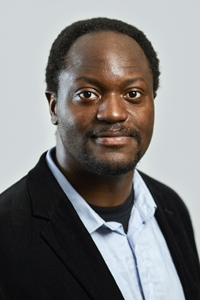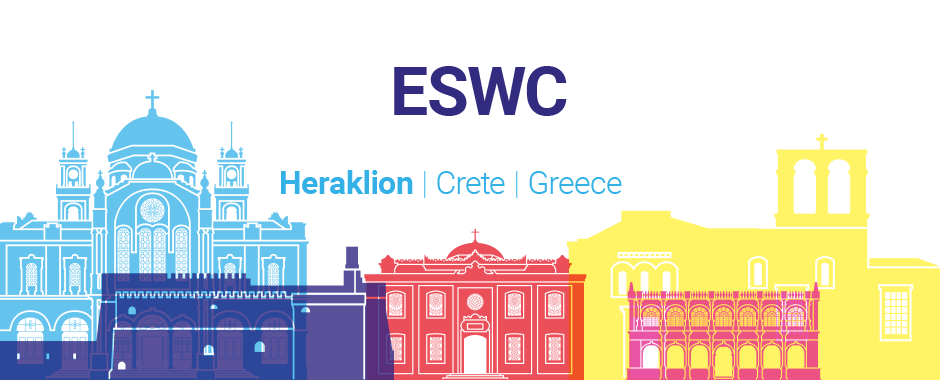Matthias Niepert
 Mathias is a professor at the University of Stuttgart and a faculty member of the International Max Planck Research School for Intelligent Systems (IMPRS-IS). His professorship is part of the Cluster of Excellence for the Simulation Sciences (SimTech) and the Department of Computer Science. He is also a Chief Scientific Advisor at NEC Laboratories Europe. At NEC he was chief research scientist as well as manager of the machine learning group. From 2013-2015 he was a postdoctoral research associate at the Allen School of Computer Science, University of Washington. Mathias was also a member of the Data and Web Science Research Group at the University of Mannheim. Mathias obtained his PhD from Indiana University, USA. His group’s research interests include representation learning for graph-structured data, geometric deep learning, probabilistic graphical models, and the intersection of ML and the simulation sciences. His group’s methods are concerned with learning, inducing, and leveraging relational structure with applications in vision, natural language processing, and the (bio-)medical domain.
Mathias is a professor at the University of Stuttgart and a faculty member of the International Max Planck Research School for Intelligent Systems (IMPRS-IS). His professorship is part of the Cluster of Excellence for the Simulation Sciences (SimTech) and the Department of Computer Science. He is also a Chief Scientific Advisor at NEC Laboratories Europe. At NEC he was chief research scientist as well as manager of the machine learning group. From 2013-2015 he was a postdoctoral research associate at the Allen School of Computer Science, University of Washington. Mathias was also a member of the Data and Web Science Research Group at the University of Mannheim. Mathias obtained his PhD from Indiana University, USA. His group’s research interests include representation learning for graph-structured data, geometric deep learning, probabilistic graphical models, and the intersection of ML and the simulation sciences. His group’s methods are concerned with learning, inducing, and leveraging relational structure with applications in vision, natural language processing, and the (bio-)medical domain.
Talk: Learning with Discrete Structures
Deep Learning approaches such as convolutional and recurrent neural networks have been successfully applied to a broad range of problems within fields such as computer vision and speech recognition. Research on these approaches has mainly focused on data defined on Euclidean spaces, that is, high-dimensional and regular grids. In numerous application domains such as Biology, the Material Sciences, and Physics, however, data is more suitably represented on non-Euclidean spaces. For instance, biomedical networks modeling genes, drugs, and their side-effects can be represented as a multi-relational and irregular graph. My group’s research is concerned with the development of learning techniques for relational data, that is, data that can be represented as graphs and on manifolds. Our work also addresses the problem of learning structure from data where it is missing, combining discrete probabilistic models with continuous gradient-based learning. The talk will also cover some biomedical applications and future research directions.
Tova Milo
 Tova Milo is the Dean of the Faculty of Exact Science at Tel Aviv University. She received her Ph.D. degree in Computer Science from the Hebrew University, Jerusalem, in 1992. After graduating she worked at the INRIA research institute in Paris and at University of Toronto and returned to Israel in 1995, joining the School of Computer Science at Tel Aviv university, where she is now a full Professor and holds the Chair of Information Management. She served as the Head of the Computer Science Department from 2011-2014. Her research focuses on large-scale data management applications such as data integration, semi-structured information, Data-centered Business Processes and Crowd-sourcing, studying both theoretical and practical aspects. Tova served as the Program Chair of multiple international conferences, including PODS, VLDB, ICDT, XSym, and WebDB, and as the chair of the PODS Executive Committee. She served as a member of the VLDB Endowment and the PODS and ICDT executive boards and as an editor of TODS, IEEE Data Eng. Bull, and the LMCS Journal. Tova has received grants from the Israel Science Foundation, the US-Israel Binational Science Foundation, the Israeli and French Ministry of Science and the European Union. She is an ACM Fellow, a member of Academia Europaea, a recipient of the 2010 ACM PODS Alberto O. Mendelzon Test-of-Time Award, the 2017 VLDB Women in Database Research award, the 2017 Weizmann award for Exact Sciences Research, and of the prestigious EU ERC Advanced Investigators grant.
Tova Milo is the Dean of the Faculty of Exact Science at Tel Aviv University. She received her Ph.D. degree in Computer Science from the Hebrew University, Jerusalem, in 1992. After graduating she worked at the INRIA research institute in Paris and at University of Toronto and returned to Israel in 1995, joining the School of Computer Science at Tel Aviv university, where she is now a full Professor and holds the Chair of Information Management. She served as the Head of the Computer Science Department from 2011-2014. Her research focuses on large-scale data management applications such as data integration, semi-structured information, Data-centered Business Processes and Crowd-sourcing, studying both theoretical and practical aspects. Tova served as the Program Chair of multiple international conferences, including PODS, VLDB, ICDT, XSym, and WebDB, and as the chair of the PODS Executive Committee. She served as a member of the VLDB Endowment and the PODS and ICDT executive boards and as an editor of TODS, IEEE Data Eng. Bull, and the LMCS Journal. Tova has received grants from the Israel Science Foundation, the US-Israel Binational Science Foundation, the Israeli and French Ministry of Science and the European Union. She is an ACM Fellow, a member of Academia Europaea, a recipient of the 2010 ACM PODS Alberto O. Mendelzon Test-of-Time Award, the 2017 VLDB Women in Database Research award, the 2017 Weizmann award for Exact Sciences Research, and of the prestigious EU ERC Advanced Investigators grant.
Talk: Data Disposal by Design
Big data analytics is changing our lives. Huge amounts of data are being collected, transformed, integrated and analyzed, leading to incredible breakthroughs in medicine, commerce, transportation, and science. This data-centered revolution is fueled by the massive amounts of data being constantly generated, but at the same time the very same information flood threatens to overwhelm us. First, the amount of data generated is growing exponentially and, in spite of advances in storage technology, is expected to exceed storage production by an order of magnitude by 2025. Second, uncontrolled data retention risks security and privacy, as recognized, e.g., by the EU Data Protection reform. Retaining the knowledge hidden in the data while respecting storage, processing and regulatory constraints is a great challenge. Traditional techniques for data sketching, summarization and deletion were developed for specific aspects of the problem, mostly related to query answering. But modern data analysis pipelines are far more complex, consisting of multiple analysis steps, including data integration, cleaning, visualization and machine learning. In this talk I will discuss the logical, algorithmic, and methodological foundations required for the systematic disposal of large-scale data over the processing pipeline. I will overview relevant related work, highlighting new research challenges and potential reuse of existing techniques, as well as the research performed in this direction in the Tel Aviv Databases group.
Axel Ngonga
 Axel Ngonga is a professor at Paderborn University, where he heads the Data Science Group. He is also a director of the Joint Artificial Intelligence Institute Paderborn-Bielefeld and the coordinator of the KnowGraphs MSCA ITN. Axel studied Computer Science in Leipzig. His PhD thesis was on knowledge-poor methods for the extraction of taxonomies from large text corpora. After completing his PhD in 2009, he wrote a Habilitation on link discovery with a focus on machine learning and runtime optimization. After leading the AKSW research group for four years, Axel went on to lead the DICE research group at Paderborn University. His research group focuses on foundational research on data-driven methods to improve the lifecycle of knowledge graphs. These include techniques for the extraction of knowledge graphs, the verification of their veracity, their integration and fusion, their use in machine learning, and their exploitation in user-facing applications such as question answering systems and chat bots. Axel has served in various functions at multiple international conferences, including ISWC, ESWC, WWW, AAAI, ECAI, and IJCAI. He is the grateful recipient of over 25 international research prizes, including a Next Einstein Fellowship and several best research paper awards. His group is funded by grants from the German Research Foundation, the German Ministry for Economic Affairs and Climate Action, the German Ministry of Education and Research, and the European Commission.
Axel Ngonga is a professor at Paderborn University, where he heads the Data Science Group. He is also a director of the Joint Artificial Intelligence Institute Paderborn-Bielefeld and the coordinator of the KnowGraphs MSCA ITN. Axel studied Computer Science in Leipzig. His PhD thesis was on knowledge-poor methods for the extraction of taxonomies from large text corpora. After completing his PhD in 2009, he wrote a Habilitation on link discovery with a focus on machine learning and runtime optimization. After leading the AKSW research group for four years, Axel went on to lead the DICE research group at Paderborn University. His research group focuses on foundational research on data-driven methods to improve the lifecycle of knowledge graphs. These include techniques for the extraction of knowledge graphs, the verification of their veracity, their integration and fusion, their use in machine learning, and their exploitation in user-facing applications such as question answering systems and chat bots. Axel has served in various functions at multiple international conferences, including ISWC, ESWC, WWW, AAAI, ECAI, and IJCAI. He is the grateful recipient of over 25 international research prizes, including a Next Einstein Fellowship and several best research paper awards. His group is funded by grants from the German Research Foundation, the German Ministry for Economic Affairs and Climate Action, the German Ministry of Education and Research, and the European Commission.
